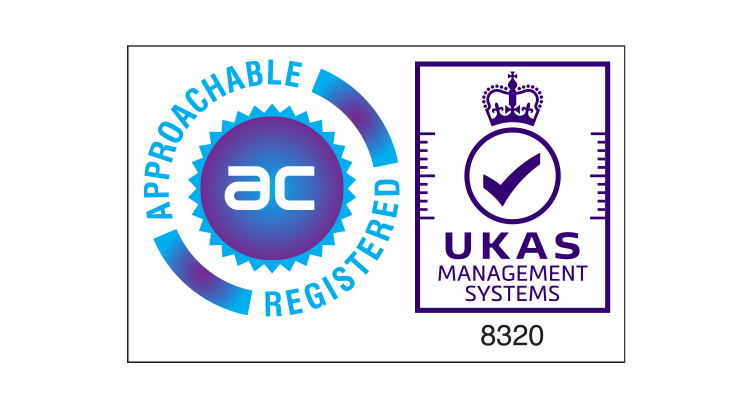What is Field Service Management?
Field service management (FSM) and field service management software has completely changed how companies deliver service and the customer experience. But what is Field Service Management, and what exactly does it do?
Defining Field Service Management
Let’s start with the basics. Field service management (FSM) is a system to organise and optimise operations outside the office or ‘in the field’. Field service management aligns off-site workers and allocates the resources they need to complete their jobs efficiently and on time.
Historically, FSM was entirely manual and offline. If field managers lifted needed to reach someone in the field, they lifted the phone. Data capture was physical, with paperwork exchanged among field service technicians, customers and office personnel. Interpreting that data required manual office admin for data entry, auditing and reporting purposes.
Today, field service management software can facilitate the information exchange described above. It provides a digital platform to manage all field service activities from end to end.
What is field service management software?
Field service management software is typically cloud-based software designed to help service organisations automate all service management components. Functions of field service management often included:
- informing stakeholders about service-level agreements
- shift planning
- work order scheduling
- enterprise resource planning
- route and schedule optimisation
- overseeing warranties, invoicing and contracts
Modern field service solutions blend the service lifecycle tasks with automation, analytics, and intelligence. This provides real-time, accurate, and efficient data-driven insights. It’s pretty cool stuff.

Why is field service management important?
Field service management is important, especially in the modern world. In our previous blog, we looked at the trends shaping modern field service. I highly recommend checking it out.
Modern FSM empowers mobile workers to do their jobs correctly and efficiently. Field service management software offers a scalable platform to make this exceptional. Every stakeholder responsible for field service delivery can be connected together, empowered with instant access to all task-relevant resources.
Seamless end-to-end service management can have many positive impacts on your company’s performance, including:
- Standardising workflow processes: Having employees use a standardised workflow process has an immediate impact on efficiency and service.
- Reducing paperwork: Physical paperwork will probably not completely disappear, but FSM software can help reduce it by digitising forms and records.
- Seamless scheduling: Transparent and dynamic worker scheduling process will minimise conflicts, establish better customer service and reduce wasted time.
Features of Field Service Management Software
Using a field service management platform to plan the next evolution of your service model is where you truly get ahead. Using a fully integrated, cloud-based system, empowers you with all kinds of insights about your operation. You can see data on repair times, tech productivity, inventory management, even vehicle maintenance, all in one place.
What are the features that make this possible? Let’s dive in.
Field Service Solutions:



Mobile Working
Due to the nature of mobile work, looking for a mobile-first interface is the best place to start. Cloud-based field service management solutions provide mobile workers with a mobile app. This app allows access to all task-critical information at the point of service.
Using a mobile field app, your technicians can view their schedules and receive work updates/orders direct-to-device (D2D). Field technicians mark work orders as complete as soon as they finish the job. This is a useful feature of field operations managers. They gain visibility over real-time work completion, meaning they can track performance against business goals.
Dynamic Scheduling
A smooth and efficient operation requires you to master scheduling at all times – and in all places. If you fall behind, you’re in a constant game of resolving the set-backs and issues a bad schedule creates. Not so good.
Disruption on the day, like supply chain gaps or unexpected worker absence, requires rescheduling several tasks with little or no notice. While this task is stressful with traditional tools, field service scheduling software makes it effortless.
Most FSM software solutions consider technician availability, skill level, location and resource access when assigning or reassigning jobs.
Dynamic scheduling elevates this. It uses an algorithm to suggest which technicians are right for the job and in the right place. This makes assigning workloads seamless. Once scheduled, the solution notifies the technician of a new work order directly to their device.
Efficient route planning prioritises your field technicians’ time on task. It creates the best routes by factoring in parameters like fuel consumption and travel distance. It works by following the vehicle or device in real-time using GPS. This feature is leveraged to offer turn-by-turn navigation and recommend the nearest technicians during scheduling.
Workforce Rostering
A lesser-found capability, but a very powerful one, is integrated workforce rostering. The key to maximising productivity and efficiency is aligning your shift patterns, rotas and rosters to fluctuating demand and employee availability. A flexible and comprehensive rostering solution enables organisations to manage staff to meet specific and complex rostering requirements effectively.
The right workforce rostering solution empowers organisations to take a modern and mixed approach to the make-up of their workforce. Digitised rostering processes ensure the right people with the right skills, are assigned to the right locations and shifts. SKill-match rostering ensures the delivery of high-quality services and compliments workforce scheduling greatly.
Work Order Management
Field service has gone digital. This means work orders should too. A work order management system streamlines the work order process. They factor the entire project lifecycle end to end. This enables you to create, complete, and track your work orders all in one place.
Rather than taking a historical view of service delivery, cloud work order management empowers you with a real-time, forward-looking view of the services delivered. You can better monitor service delivery, identify risks, and take the necessary actions to maintain high-performance standards.
Technicians can document the work they complete in the field. Centralising resources means your techs can capture photos, videos, notes, and signatures and update completion status on-task. Back at base, office staff and other technicians can quickly access and use this information. As it is digitised, there’s no data-loss owed to bad handwriting or lost notepads.
As your field teams complete work, they can mark it as complete in real-time. A quick search lets you understand work order status across the entire network, providing management with a complete picture of performance. A single source of truth is created. Everyone is on the same page, and all work order data is exportable, easily sortable, and auditable.
Lone Worker Protection
Cloud-based employee safety solutions protect your staff in the field. They empower you to create an efficient, high-performing service, prioritising staff welfare and compliance at every step. Hardware devices, SOS fobs or mobile apps can drive greater worker safety across your service operation.
Some solutions offer beacon geofencing, enabling organisations to provide updates and alerts to staff based on their location. Often used in large, fixed-site locations such as factories or building sites. Staff can be made aware of when they enter a dangerous area or can be reminded of required safety equipment. This helps increase the visibility of staff movement and provides information that enhances auditability.
Operational Intelligence
Your business is constantly creating valuable data. Harnessing that data is the launchpad for an enormous operational advantage. Operational intelligence enables organisations to gain a full understanding of past, present and future service performance. It can highlight in real-time the current status of service.
Without field service intelligence features, you are probably missing out on valuable performance insights, such as:
- First-time fix rates
- Jobs per technician
- Work order completion
- Revenue per month
- Most profitable clients and more
Field service intelligence solutions can convert that data into visualisations or one dashboard for easy communication to internal stakeholders. They easily contextualise patterns and trends within your service chain. These trends can positively or negatively affect performance. The key is that is in real-time.
Armed with this information, your operations managers can make informed, data-driven decisions that optimise processes and save on overall costs. This is transformational.
Real-Time Communications
Centralised communications keep all your field service comms in one place. This makes it easier to track communications and allows for capabilities that texts or letters cannot.
Technicians can use centralised communications to search the entire network for answers quickly and request support on-task. Suddenly back-office processes and front-line work are seamlessly connected, breaking siloes and unifying processes.
Centralised Databases
As we found in chapter two, customer service is essential to field service organisations. Some field service solutions, including Connect, offer a client portal. All features of service delivery are available to customers: form access, appointment services, technician communications, job progress updates and invoicing.
Clients can also provide a contact number to receive worker en route notifications with an accurate ETA of arrival. Empowered with these resources, your customer expectations are met. They feel valued, and your frontline teams can perform customer service to the highest quality.
That is Field Service Management
In a nutshell, that is what field service management can do, and why it’s important. It allows organisations to take a holistic approach to planning, delivering and analysing how they deliver field service to their customers. Beyond pure capabilities, organisations must also consider product breadth, innovation, integration, and dedication to customer success when reviewing suppliers.












